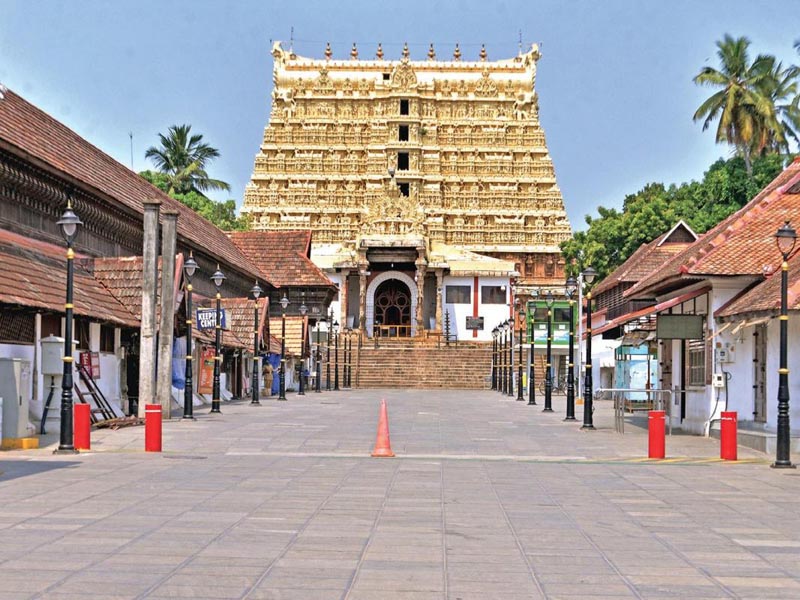Thiruvananthapuram, earlier known as Trivandrum, is the capital city of Kerala. The name literally splits into ” *Tiru”,”Anantha””puram”* meaning “the town of Lord ANANTHA”. This is really true since the temple is at the heart of the town and for generations, the kings have called themselves “Padmanabha-Dasa” or the “servants of LORD Ananthapadmanabha”, and ruled the state as the representatives of LORD Anantha-Padmanabha.
The town has a history of supporting fine art and culture. The Kings of Tiruvancore (Thirunals as they are known) have not only promoted art but have themselves been accomplished artists. The most famous of them are Swathi Tirunal who is a well known composer in both Karnatak and Hindustani systems of music, and Raja Ravi Varma the internationally acclaimed painter, well known for inventing paints using natural materials.
VEDIK GNAN
There are four Vedas:
The Rigveda,
the Yajurveda,
the Samaveda and
the Atharvaveda.
Each Veda has four subdivisions – the Samhitas (mantras and benedictions), the Aranyakas (text on rituals, ceremonies, sacrifices and symbolic-sacrifices), the Brahmanas (commentaries on rituals, ceremonies and sacrifices), and the Upanishads (texts discussing meditation, philosophy and spiritual knowledge). Some scholars add a fifth category – the Upasanas (worship). The texts of the Upanishads discuss ideas akin to the heterodox sramana-traditions.
Vedas are śruti (“what is heard”), distinguishing them from other religious texts, which are called smṛti (“what is remembered”).
LEARN Sanskrit -Sanatana, *सनातन*: means Eternal
 |
Ch. Naveen Kumar |


